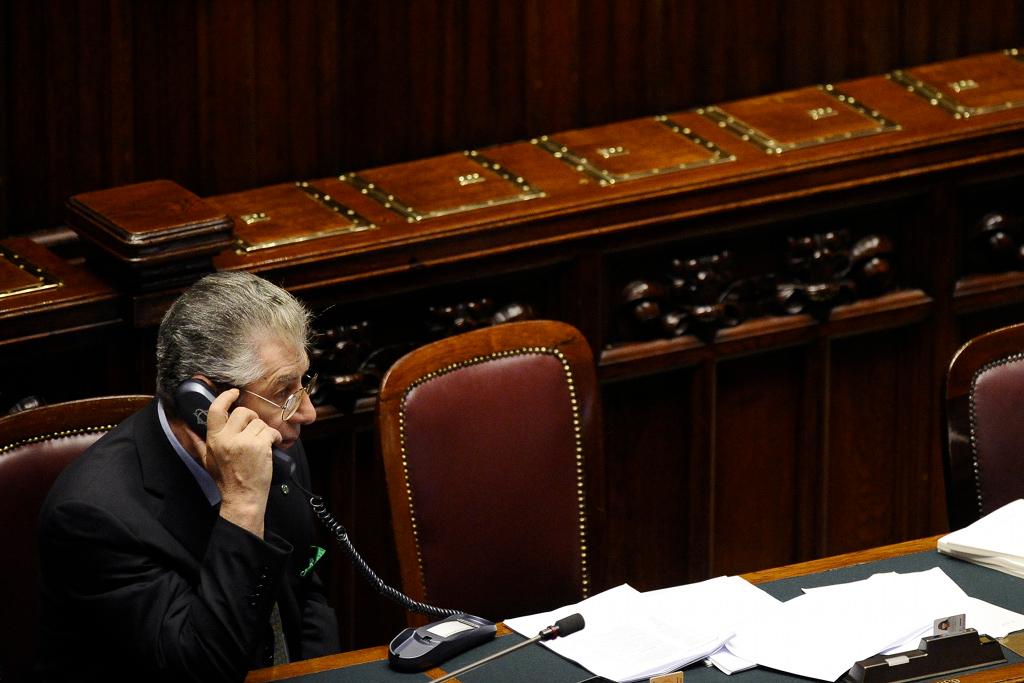Europe: the crisis continues
Italian politician Umberto Bossi (pictured last week in the Italian parliament) has a bunt message to new Prime Minister Mario Monti is, Call me if you want to talk … but I make no promises.
Just when you thought it was safe to go back in the water:
The technocrats put in charge of Italy and Greece last week are discovering that their presence hasn't calmed either the markets or the politicians whom they are supposed to mold into national unity governments.
In Italy, Mario Monti is in Rome meeting with senior politicians as he tries to put together a cabinet. Monti has already been told by Italy's most powerful politician, Northern League leader Umberto Bossi, not to expect him in Rome, not to expect his vote in the confidence vote that will take place once the new government is assembled, and not to expect his unwavering support. Bossi will vote on each piece of legislation on a "case by case" basis.
No wonder Monti says he "hopes" to govern until 2013, the latest date for the next elections to be held. You don't need me to explain the difference between " I hope to govern" and "I am certain I will govern."
In Greece, Antonis Samaras, leader of the right-wing New Democracy party, the second largest in the new coalition government said he would not sign a letter demanded by the EU pledging Greece to abide by the terms of its bailout, Ekathimerini reports.
The interconnectedness of Greece and Italy was demonstrated when Unicredit, Italy's largest bank in terms of assets, announced it was laying off 6,200 workers following a reported 10 billion euro loss in the third quarter. The reason for the loss: the bank holds a lot of Greek bonds.
And, in another sign of interconnectedness, one of Britain's best known booze chains reported year on year sales are down. Actually, booze is an unfair usage. Majestic Wine Warehouse (where I do a significant amount of shopping) reports sales were off in October. That's a sure sign that middle-class British consumers are cutting back on spending. Having lived here for more than a quarter of a century I know that when the Brits start cutting back on alcohol you can be certain that economic confidence is low. Water, milk for the baby, bread would all get cut back before a decent bottle of wine with dinner. Clearly people fear austerity measures and the euro zone crisis are sending the British economy back towards recession.
Every day, reporters and producers at The World are hard at work bringing you human-centered news from across the globe. But we can’t do it without you. We need your support to ensure we can continue this work for another year.
Make a gift today, and you’ll help us unlock a matching gift of $67,000!
